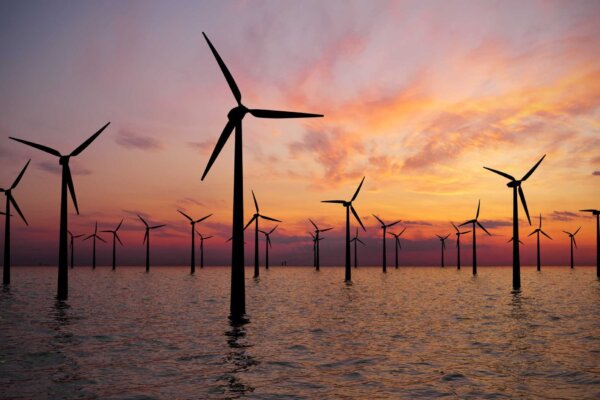Renewables supplied over half of the UK’s energy mix for three consecutive quarters
A new record has been set, with over half of the UK’s energy supply being powered by renewable energy for the third consecutive quarter, including Q4 of 2023, as well as Q1 and Q2 of 2024, according to data from the Department of Energy Security and Net Zero’s (DESNZ)’s Energy Trends report13. Renewables supplied 51.6% of the total energy generation between April and June this year, and renewable generation increased by 19% compared to the second quarter of 2023.
Europe’s solar farms threatened by the impact of climate change
Solar farms, which are an important part of the net zero energy transition and provide zero carbon electricity at the point of generation, may be feeling the effects of climate change. A report has highlighted that increasingly extreme and erratic weather events, including hailstorms, present a significant threat to solar panels, damaging their protective glass and causing heavy repair costs14.
Over the last five years, Europe has seen a startling 267% increase in hailstorms. This presents a deterrent for prospective solar farms in hailstorm-prone areas. However, new and innovative technology, such as weather-monitoring systems and crack-resistant films for panels, are in development and will hopefully become cost-effective solutions, reducing this risk.
The rising interest in floating solar
Interest in the untapped potential of floating solar has been rising in recent years, as covered in a recent report by Solar Power Portal15. Floating solar photovoltaics (FPV) are installed on platforms anchored in bodies of water, which widens the potential of renewable energy from solar panels to areas where land is less available. Research also suggests that floating solar panels could help minimise water loss from reservoirs and lakes during times of extreme heat, shielding and keeping the water cool, while also helping to decrease the amount of harmful algal blooms that could grow.
Few floating solar projects have yet been implemented in the UK, but increased development and investment into this renewable energy source could provide a significant contribution to the UK’s energy supply. In fact, research has demonstrated that floating solar could be used in conjunction with hydropower reservoirs – covering only 2.3% of Europe’s hydro reservoirs with floating solar panels could provide 42.3TWh of power annually, and could prevent water loss, thereby keeping the hydro dams running more efficiently. Our parent company, Statkraft, has invested €2 million into a floating solar plant at a hydro power reservoir in Albania, a pilot project which was completed in 202316.
The UK’s pipeline for onshore wind power has grown by over 4GW in the last year
In the last year, the UK’s onshore wind pipeline has progressed twice as fast as last year, according to a new report17. Across all stages of development combined, there has been an increase of 4.2GW since September 2023, growing the UK’s onshore wind pipelines from 38.5GW to 42.7GW, which is thought to be a reflection of the new Government’s lifting of the previous effective ban on onshore wind farms.
As wind is naturally abundant in the UK, it’s great to see the nation taking steps towards the stated ambition of being a global leader in this sector18. Wind energy makes up a large part of our own fuel mix, and so we are thrilled to see such significant developments in wind energy!


